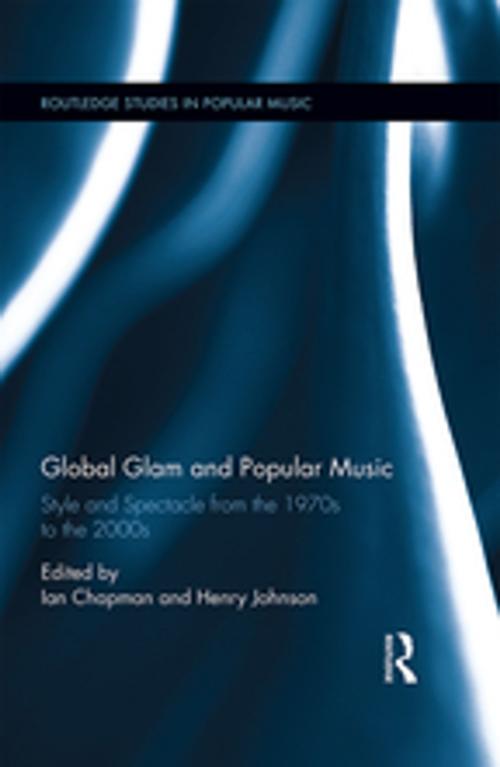Global Glam and Popular Music
Style and Spectacle from the 1970s to the 2000s
Nonfiction, Entertainment, Music, International, Pop & Rock, Popular, Music Styles| Author: | ISBN: | 9781317588184 | |
| Publisher: | Taylor and Francis | Publication: | February 12, 2016 |
| Imprint: | Routledge | Language: | English |
| Author: | |
| ISBN: | 9781317588184 |
| Publisher: | Taylor and Francis |
| Publication: | February 12, 2016 |
| Imprint: | Routledge |
| Language: | English |
This book is the first to explore style and spectacle in glam popular music performance from the 1970s to the present day, and from an international perspective. Focus is given to a number of representative artists, bands, and movements, as well as national, regional, and cultural contexts from around the globe. Approaching glam music performance and style broadly, and using the glam/glitter rock genre of the early 1970s as a foundation for case studies and comparisons, the volume engages with subjects that help in defining the glam phenomenon in its many manifestations and contexts. Glam rock, in its original, term-defining inception, had its birth in the UK in 1970/71, and featured at its forefront acts such as David Bowie, T. Rex, Slade, and Roxy Music. Termed "glitter rock" in the US, stateside artists included Alice Cooper, Suzi Quatro, The New York Dolls, and Kiss. In a global context, glam is represented in many other cultures, where the influences of early glam rock can be seen clearly. In this book, glam exists at the intersections of glam rock and other styles (e.g., punk, metal, disco, goth). Its performers are characterized by their flamboyant and theatrical appearance (clothes, costumes, makeup, hairstyles), they often challenge gender stereotypes and sexuality (androgyny), and they create spectacle in popular music performance, fandom, and fashion. The essays in this collection comprise theoretically-informed contributions that address the diversity of the world’s popular music via artists, bands, and movements, with special attention given to the ways glam has been influential not only as a music genre, but also in fashion, design, and other visual culture.
This book is the first to explore style and spectacle in glam popular music performance from the 1970s to the present day, and from an international perspective. Focus is given to a number of representative artists, bands, and movements, as well as national, regional, and cultural contexts from around the globe. Approaching glam music performance and style broadly, and using the glam/glitter rock genre of the early 1970s as a foundation for case studies and comparisons, the volume engages with subjects that help in defining the glam phenomenon in its many manifestations and contexts. Glam rock, in its original, term-defining inception, had its birth in the UK in 1970/71, and featured at its forefront acts such as David Bowie, T. Rex, Slade, and Roxy Music. Termed "glitter rock" in the US, stateside artists included Alice Cooper, Suzi Quatro, The New York Dolls, and Kiss. In a global context, glam is represented in many other cultures, where the influences of early glam rock can be seen clearly. In this book, glam exists at the intersections of glam rock and other styles (e.g., punk, metal, disco, goth). Its performers are characterized by their flamboyant and theatrical appearance (clothes, costumes, makeup, hairstyles), they often challenge gender stereotypes and sexuality (androgyny), and they create spectacle in popular music performance, fandom, and fashion. The essays in this collection comprise theoretically-informed contributions that address the diversity of the world’s popular music via artists, bands, and movements, with special attention given to the ways glam has been influential not only as a music genre, but also in fashion, design, and other visual culture.















